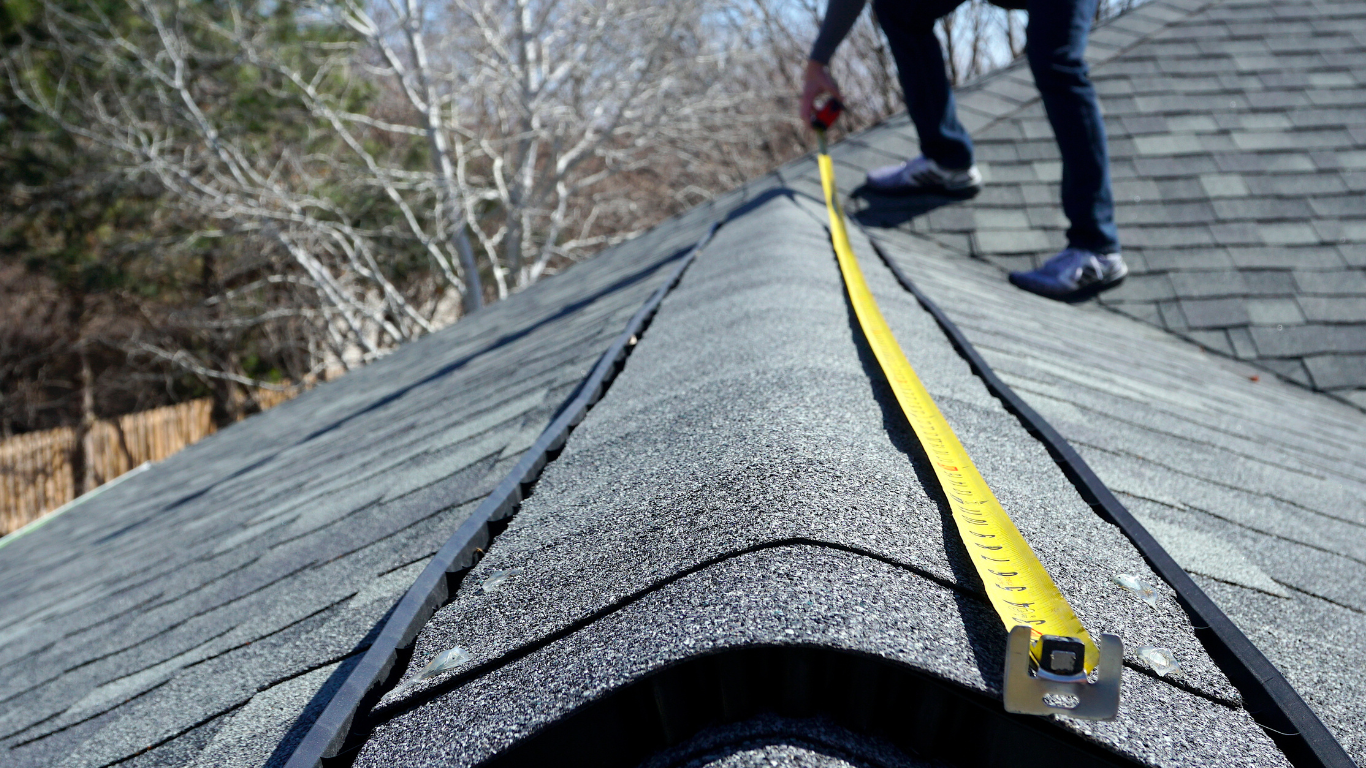Roofing is a critical aspect of any building, providing protection from the elements and contributing to the overall aesthetic and structural integrity of the property. In India, the roofing industry has evolved significantly over the years, with a variety of materials, styles, and technologies now available to suit different needs and budgets. Whether you’re building a new home, renovating an old one, or managing a commercial property, choosing the right roofing company is crucial for ensuring quality and durability. This comprehensive guide will walk you through everything you need to know about roofing companies in India, helping you make informed decisions.
Understanding the Roofing Industry in India
The roofing industry in India is vast and diverse, catering to a wide range of residential, commercial, and industrial needs. With rapid urbanization and the growth of the construction sector, the demand for high-quality roofing solutions has surged. Roofing companies in India offer a variety of services, including installation, repair, maintenance, and replacement of roofs, using a range of materials such as tiles, metal, asphalt, and eco-friendly options.
Key Roofing Materials in India
a. Clay Tiles:
One of the oldest and most traditional roofing materials in India, clay tiles are known for their durability and aesthetic appeal. They are particularly popular in regions with a warm climate, as they provide excellent insulation.
b. Metal Roofing:
Metal roofs, typically made from steel or aluminum, are gaining popularity due to their longevity and resistance to extreme weather conditions. They are also lightweight and can be easily installed.
c. Asphalt Shingles:
Widely used in urban areas, asphalt shingles offer a good balance between cost and performance. They are available in various colors and designs, making them a versatile option for residential roofing.
d. Concrete Tiles:
Concrete tiles are a more affordable alternative to clay tiles, offering similar durability and aesthetic appeal. They are often used in regions with heavy rainfall, as they provide excellent water resistance.
e. Eco-Friendly Roofing:
With the growing awareness of sustainability, eco-friendly roofing options like solar panels, green roofs, and recycled materials are becoming more popular. These options not only reduce the environmental impact but also offer energy savings in the long run.
Factors to Consider When Choosing a Roofing Company
Selecting the right roofing company is crucial for ensuring the success of your project. Here are some key factors to consider:
a. Experience and Expertise:
Look for a company with a proven track record in the industry. Experienced companies are more likely to deliver quality work and handle complex projects efficiently.
b. Licensing and Insurance:
Ensure that the roofing company is licensed and insured. This protects you from any liability in case of accidents or damages during the project.
c. Customer Reviews and Testimonials:
Check online reviews and testimonials to gauge the company’s reputation. Positive feedback from previous clients is a good indicator of reliable service.
d. Range of Services:
Choose a company that offers a comprehensive range of services, including installation, repair, maintenance, and emergency services. This ensures that all your roofing needs are met under one roof.
e. Material Options:
A good roofing company should offer a variety of material options to suit your specific needs and budget. They should also provide guidance on the best materials for your project.
f. Warranty and After-Sales Service:
Check if the company offers a warranty on their work and materials. Additionally, inquire about their after-sales service, as regular maintenance is crucial for the longevity of your roof.
Top Roofing Companies in India
India is home to several reputable roofing companies that offer a wide range of services. Here are some of the top companies known for their quality work and customer satisfaction:
1. Tata BlueScope Steel
Tata BlueScope Steel is a leading name in the Indian roofing industry, offering a variety of steel roofing solutions. Known for their durable and high-quality products, Tata BlueScope Steel caters to residential, commercial, and industrial sectors. Their Colorbond and Zincalume roofing sheets are popular choices for modern constructions, offering excellent resistance to corrosion and weathering.
Key Services:
- Roofing installation
- Metal roofing solutions
- Roofing accessories
- Insulation and ventilation solutions
Why Choose Tata BlueScope Steel:
- Extensive product range
- Strong brand reputation
- Excellent customer service
2. Hindalco Everlast
Hindalco Everlast, a part of the Aditya Birla Group, is another top player in the roofing industry in India. Specializing in aluminum roofing sheets, Hindalco Everlast is known for its lightweight, durable, and corrosion-resistant products. They offer a range of profiles, colors, and finishes to suit different architectural styles.
Key Services:
- Aluminum roofing sheets
- Customizable roofing solutions
- Installation and technical support
Why Choose Hindalco Everlast:
- High-quality aluminum products
- Customization options
- Industry-leading expertise
3. Ramco Industries Limited
Ramco Industries Limited is a well-established name in the roofing sector, offering a wide range of roofing solutions, including fiber cement sheets, tiles, and metal roofing. Their products are known for their strength, durability, and aesthetic appeal, making them a popular choice for both residential and commercial projects.
Key Services:
- Fiber cement roofing sheets
- Metal roofing solutions
- Roofing accessories
Why Choose Ramco Industries:
- Wide product range
- Proven track record
- Focus on innovation and sustainability
4. Oriental Structural Engineers (OSE)
Oriental Structural Engineers (OSE) is a leading infrastructure company in India, providing roofing solutions for large-scale commercial and industrial projects. They specialize in metal roofing and cladding systems, offering high-performance solutions that meet the stringent requirements of modern construction.
Key Services:
- Metal roofing and cladding
- Installation and maintenance
- Custom solutions for large-scale projects
Why Choose Oriental Structural Engineers:
- Expertise in large-scale projects
- High-performance roofing systems
- Commitment to quality and safety
5. BNAL Prefabs
BNAL Prefabs is known for its innovative roofing solutions, particularly in the prefab and modular construction space. They offer a range of roofing materials, including metal, polycarbonate, and fiberglass, catering to residential, commercial, and industrial clients. BNAL Prefabs is known for its quick turnaround times and cost-effective solutions.
Key Services:
- Prefabricated roofing systems
- Metal, polycarbonate, and fiberglass roofing
- Customizable solutions for various projects
Why Choose BNAL Prefabs:
- Innovative and cost-effective solutions
- Quick installation and delivery
- Focus on customer satisfaction
Roofing Costs in India: What to Expect
The cost of roofing in India can vary widely depending on several factors, including the type of material used, the complexity of the design, the size of the roof, and the location of the project. Here’s a breakdown of what you can expect to pay for different roofing materials:
1. Clay Tiles:
Clay tiles are one of the more expensive options, with prices ranging from INR 120 to INR 250 per square foot. However, their durability and aesthetic appeal can justify the higher cost.
2. Metal Roofing:
Metal roofing is generally more affordable, with prices ranging from INR 80 to INR 150 per square foot. Steel and aluminum are the most commonly used metals, offering good durability and weather resistance.
3. Asphalt Shingles:
Asphalt shingles are a mid-range option, with costs ranging from INR 100 to INR 180 per square foot. They offer good value for money, especially in urban areas.
4. Concrete Tiles:
Concrete tiles are slightly more affordable than clay tiles, with prices ranging from INR 100 to INR 200 per square foot. They are a popular choice in areas with heavy rainfall.
5. Eco-Friendly Roofing:
Eco-friendly roofing options like solar panels can be more expensive upfront, with costs ranging from INR 200 to INR 500 per square foot. However, the long-term savings on energy bills can make them a worthwhile investment.
6. Labor Costs:
Labor costs for roofing in India can vary based on the complexity of the project and the location. On average, labor costs range from INR 40 to INR 100 per square foot.
7. Additional Costs:
- Insulation: Adding insulation to your roof can cost an additional INR 20 to INR 60 per square foot.
- Ventilation: Proper ventilation is crucial for maintaining the longevity of your roof, and costs can range from INR 50 to INR 150 per square foot.
The Roofing Process: From Consultation to Completion
Choosing the right roofing company is just the first step. Understanding the entire roofing process can help you make informed decisions and ensure a smooth project from start to finish. Here’s a step-by-step guide to what you can expect:
1. Initial Consultation and Inspection
The process begins with an initial consultation where the roofing company will assess your needs, budget, and preferences. This is usually followed by an on-site inspection to evaluate the condition of the existing roof (if applicable) and the overall structure of the building.
2. Material Selection and Cost Estimation
Based on the inspection and your preferences, the roofing company will recommend suitable materials and provide a detailed cost estimate. This will include the cost of materials, labor, and any additional services like insulation or ventilation.
3. Contract Signing
Once you agree on the materials, costs, and timeline, a contract is signed outlining the scope of work, payment schedule, warranty details, and other terms and conditions. Make sure to read the contract carefully before signing.
4. Preparation and Installation
Before installation begins, the site is prepared by removing the existing roof (if necessary) and making any necessary repairs to the underlying structure. The roofing materials are then installed according to the agreed-upon design and specifications.
5. Inspection and Final Touches
After the installation is complete, a thorough inspection is conducted to ensure that the work meets quality standards. Any final touches, such as painting or sealing, are also completed during this stage.
6. Handover and Warranty
Once everything is in order, the project is handed over to you, along with any warranty documentation. Make sure to keep these documents safe, as they will be essential for future maintenance or repairs.
Maintenance Tips for Longevity of Your Roof
Regular maintenance is crucial for extending the lifespan of your roof and avoiding costly repairs. Here are some tips to keep your roof in top condition:
1. Regular Inspections: Conduct regular inspections, especially after extreme weather conditions, to identify any damage or wear and tear.
2. Clean Gutters and Drains: Clogged gutters and drains can cause water to back up and damage your roof. Make sure to clean them regularly.
3. Trim Overhanging Trees: Overhanging branches can damage your roof during storms and drop leaves that clog gutters. Keep trees trimmed to prevent these issues.
4. Check for Moss and Algae: Moss and algae can cause damage to your roof if left untreated. Use a roof cleaner or hire a professional to remove them.
5. Address Leaks Immediately: If you notice any leaks, address them immediately to prevent further damage to your roof and the interior of your home.
6. Schedule Professional Maintenance: Regular professional maintenance can help identify potential issues before they become major problems. Consider scheduling an annual check-up with your roofing company.
Conclusion
Choosing the right roofing company and material is crucial for ensuring the longevity and performance of your roof. Whether you’re building a new home, renovating, or managing a commercial property, understanding the roofing industry in India, the costs involved, and the maintenance required can help you make informed decisions.
With this comprehensive guide, you are now equipped with the knowledge to select the best roofing company in India for your needs. Remember to prioritize quality, reliability, and customer service when making your choice, and don’t hesitate to seek professional advice if you’re unsure about any aspect of your roofing project.
Investing in a high-quality roof is not just about protecting your property; it’s about enhancing its value, aesthetic appeal, and longevity. So, take your time, do your research, and choose wisely.
FAQs for Roofing Companies in India
1. What are the most popular roofing materials used in India?
The most popular roofing materials in India include clay tiles, metal roofing, asphalt shingles, concrete tiles, and eco-friendly options like solar panels and green roofs.
2. How do I choose the right roofing company in India?
Consider factors such as the company’s experience, licensing, customer reviews, range of services, material options, and warranty. It’s also essential to compare quotes and ask for recommendations.
3. How much does it cost to install a new roof in India?
Roofing costs in India vary based on materials, design complexity, and location. Prices typically range from INR 80 to INR 500 per square foot, depending on the material chosen.
4. How long does it take to install a new roof?
The duration for installing a new roof can vary, but most projects take between one to two weeks, depending on the roof size, material, and weather conditions.
5. What is the importance of regular roof maintenance?
Regular maintenance, including inspections, cleaning, and repairs, can extend the lifespan of your roof, prevent leaks, and reduce the need for costly repairs in the future.
6. Can I install a new roof over my old one?
In some cases, a new roof can be installed over an old one, but it depends on the condition of the existing roof and local building codes. A professional inspection is recommended.
7. What is the best roofing material for areas with heavy rainfall?
Concrete tiles and metal roofing are excellent choices for areas with heavy rainfall due to their durability and water resistance.
8. Are there eco-friendly roofing options available in India?
Yes, eco-friendly roofing options like solar panels, green roofs, and recycled materials are becoming increasingly popular in India for their sustainability and energy-saving benefits.
9. How can I find reliable roofing contractors near me?
Search online directories, ask for recommendations, and check customer reviews to find reliable roofing contractors in your area.
10. What should be included in a roofing contract?
A roofing contract should include details about the scope of work, materials used, payment schedule, warranty, and terms and conditions.




